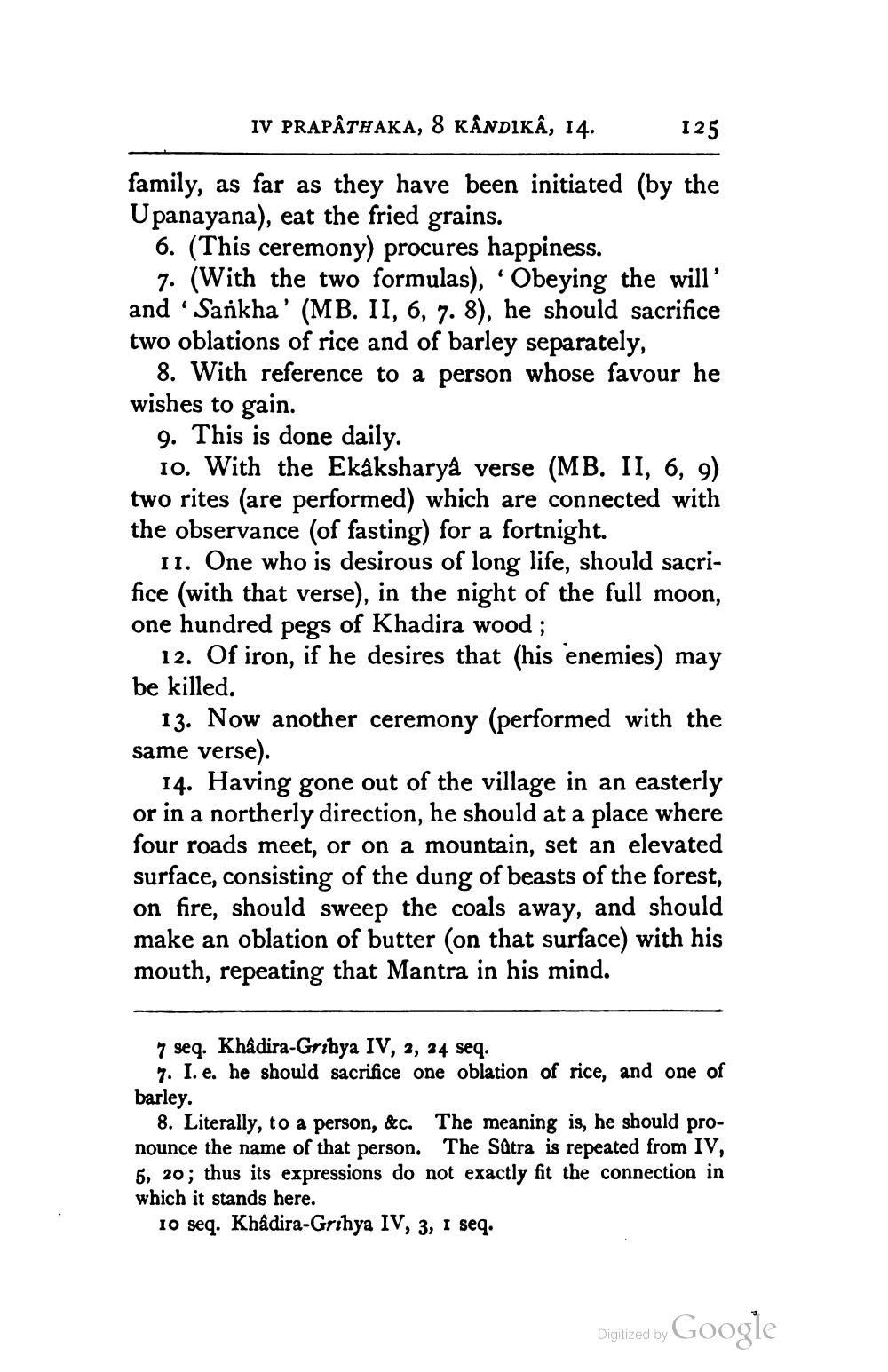________________
IV PRAPATHAKA, 8 KANDIKA, 14.
125
family, as far as they have been initiated (by the Upanayana), eat the fried grains.
6. (This ceremony) procures happiness.
7. (With the two formulas), Obeying the will' and 'Sankha' (MB. II, 6, 7. 8), he should sacrifice two oblations of rice and of barley separately,
"
8. With reference to a person whose favour he wishes to gain.
9. This is done daily.
10. With the Ekâksharyâ verse (MB. II, 6, 9) two rites (are performed) which are connected with the observance (of fasting) for a fortnight.
11. One who is desirous of long life, should sacrifice (with that verse), in the night of the full moon, one hundred pegs of Khadira wood;
12. Of iron, if he desires that (his enemies) may be killed.
13. Now another ceremony (performed with the same verse).
14. Having gone out of the village in an easterly or in a northerly direction, he should at a place where four roads meet, or on a mountain, set an elevated surface, consisting of the dung of beasts of the forest, on fire, should sweep the coals away, and should make an oblation of butter (on that surface) with his mouth, repeating that Mantra in his mind.
7 seq. Khâdira-Grihya IV, 2, 24 seq.
7. I. e. he should sacrifice one oblation of rice, and one of barley.
8. Literally, to a person, &c. The meaning is, he should pronounce the name of that person. The Sutra is repeated from IV, 5, 20; thus its expressions do not exactly fit the connection in which it stands here.
10 seq. Khâdira-Grihya IV, 3, I seq.
Digitized by Google




